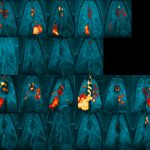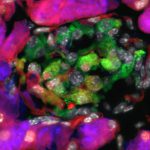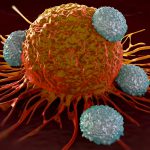 Men with HIV were at significantly higher risk for development of coronary artery calcium (CAC), an early sign of coronary heart disease, according to a large national study led by the University of Pittsburgh Graduate School of Public Health.
Men with HIV were at significantly higher risk for development of coronary artery calcium (CAC), an early sign of coronary heart disease, according to a large national study led by the University of Pittsburgh Graduate School of Public Health.
In addition, the study identified two modifiable risk factors independently associated with increased incidence of CAC: smoking and increased insulin resistance. The results are published in the journal AIDS.
“Taken together, these findings underscore the potential importance for smoking cessation and interventions to improve insulin resistance among HIV-infected men,” wrote lead author Lawrence A. Kingsley, Dr.P.H., professor in Pitt Public Health’s departments of Infectious Diseases and Microbiology, and Epidemiology.
The study looked at 825 men (541 HIV-infected and 284 HIV-uninfected) enrolled in the cardiovascular sub-study of the Multicenter AIDS Cohort Study (MACS). The men underwent regular cardiac CT imaging during a follow-up period averaging five years.
During follow-up, 21 percent of HIV-infected men developed CAC, compared with 16 percent of HIV-uninfected men. This association persisted after adjustment for traditional and HIV-associated risk factors.
However, there was no association between CAC progression and whether antibodies to HIV were detectable in the blood. There was also no evidence supporting an elevated risk for either CAC progression or incidence if the men had abnormal amounts of fat or cholesterol in their blood, or had been on antiretroviral therapy for a long time.
The discovery was made possible by using data and biologic specimens collected through the National Institutes of Health-funded MACS, a confidential research study of the natural history of untreated and treated HIV/AIDS in men who have sex with men that has been running for more than 30 years. The Pittsburgh arm of the study is the Pitt Men’s Study.
Additional authors on this study are Jennifer Deal, Ph.D., Lisa Jacobson, Ph.D., and Wendy S. Post, M.D., M.S., all of Johns Hopkins University; Matthew Budoff, M.D., and Mallory Witt, M.D., both of the Los Angeles Biomedical Research Institute at Harbor-UCLA Medical Center; Frank Palella, M.D., of Northwestern University; and Bridget Calhoun, Dr.P.H., of Duquesne University.








